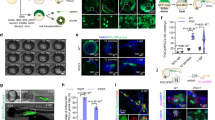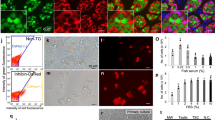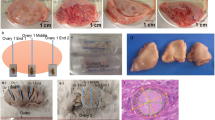Abstract
HITHERTO, the experimental investigation of early reptile embryos has lagged far behind that of fishes, amphibians and birds. Vital marking has been carried out in Chelonia, where the hardness of the shell has made in ovo techniques possible1, but no transplantation experiments appear to have been performed. Such experiments cannot be done in ovo because of the difficulty of manipulating tissues which lie beneath the vitelline membrane. This limitation, however, does not apply to material cultured in vitro. An attempt has been made, therefore, to find out if young reptile embryos can be grown successfully in vitro.
This is a preview of subscription content, access via your institution
Access options
Subscribe to this journal
Receive 51 print issues and online access
$199.00 per year
only $3.90 per issue
Buy this article
- Purchase on Springer Link
- Instant access to full article PDF
Prices may be subject to local taxes which are calculated during checkout
Similar content being viewed by others
References
Pasteels, J., Arch. Biol., Paris, 48, 105 (1937).
Waddington, C. H., Phil. Trans. Roy. Soc., B, 221, 179 (1932).
Author information
Authors and Affiliations
Rights and permissions
About this article
Cite this article
BELLAIRS, R. Development of Early Reptile Embryos in vitro. Nature 167, 687–688 (1951). https://doi.org/10.1038/167687a0
Issue Date:
DOI: https://doi.org/10.1038/167687a0
Comments
By submitting a comment you agree to abide by our Terms and Community Guidelines. If you find something abusive or that does not comply with our terms or guidelines please flag it as inappropriate.



